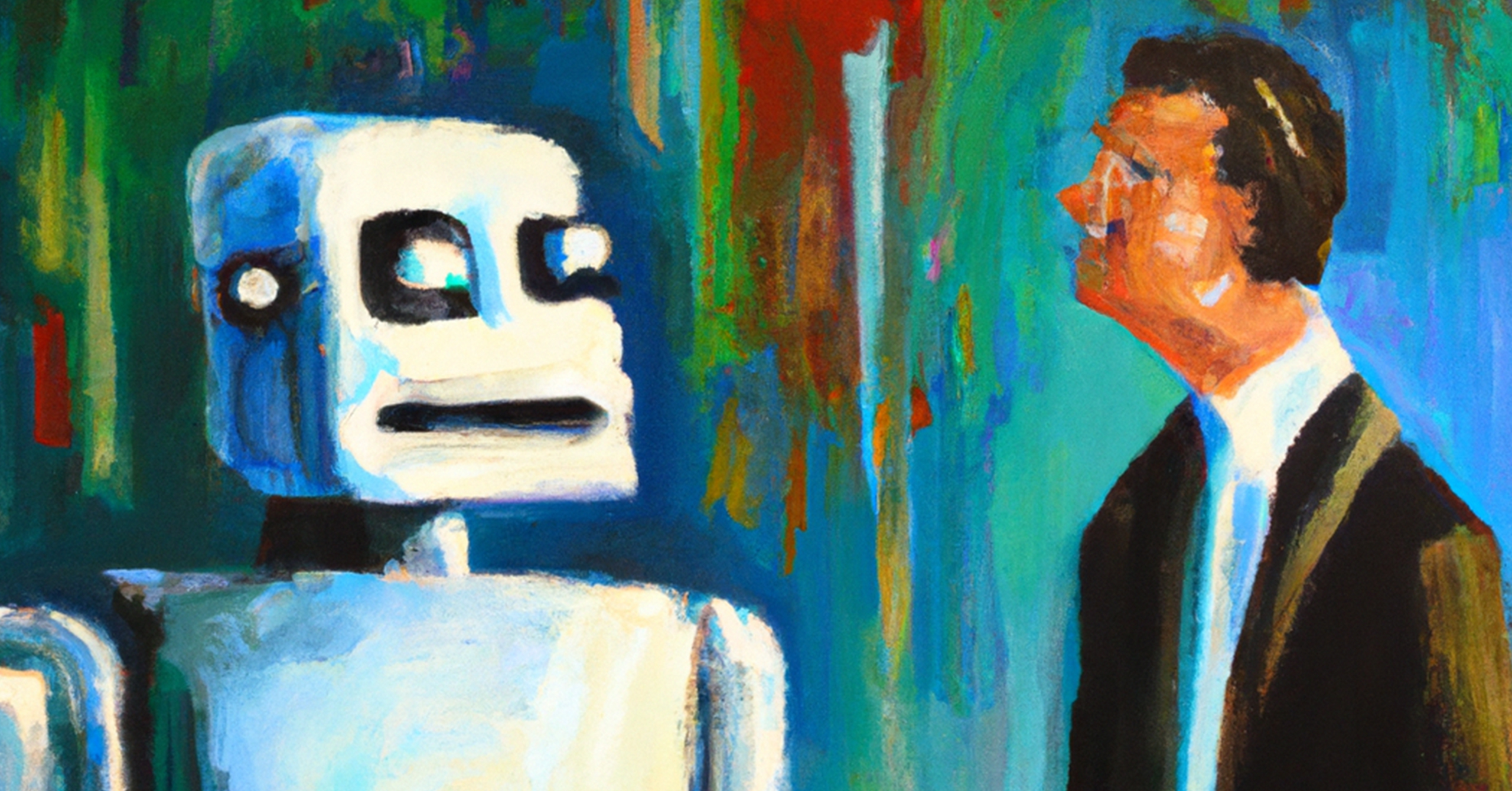How will natural language processing AI like ChatGPT impact marketing?
As a marketing agency, it’s important to stay up to date on the latest technologies and tools that can help us better serve our clients. That being said, it’s also important to recognize the limitations of these technologies and to understand that they will never fully replace the human element of our work.
One technology that has garnered a lot of attention in recent years is ChatGPT, a natural language processing tool that uses machine learning to generate human-like text. While ChatGPT has the ability to produce impressive results in certain contexts, it’s important to recognize that it will never be able to fully replace human copywriters.
Here are a few reasons why:
- Creativity: One of the biggest strengths of human copywriters is their ability to bring creativity to their work. They are able to come up with unique ideas and approaches that can help set a brand apart from its competitors. ChatGPT, on the other hand, is limited to generating text based on the data it has been trained on. It may be able to produce coherent and grammatically correct sentences, but it lacks the creative spark that only humans can provide.
- Understanding context and audience: A good copywriter is able to understand the context in which their words will be read and tailor their messaging accordingly. They understand the target audience and know how to craft messages that will resonate with them. ChatGPT may be able to generate text based on certain parameters, but it can’t fully understand the nuances of a specific audience or context.
- Emotional appeal: One of the most effective ways to connect with an audience is through emotions. A good copywriter knows how to tap into the emotions of their audience and use them to drive desired actions. ChatGPT, on the other hand, lacks the ability to understand and tap into human emotions.
In summary, while ChatGPT and other natural language processing tools have the potential to be useful tools in certain contexts, they will never fully replace the skills and expertise of human copywriters. As a marketing agency, it’s important to recognize the limitations of these technologies and to continue to value and invest in the human element of our work.
In fact, everything you just read was from ChatGPT. No, really. We asked ChatGPT to write a blog about its impact on marketing, and well, there you have it.
And we have to admit – it’s pretty impressive. But, it’s also boring and lacking meaningful context to you, as our audience. So, as with everything, there are pluses and minuses to trends like ChatGPT and OpenAI.
After using ChatGPT within our own agency, here’s our take on the future of this software for marketing and communications.
Where it excels:
- ChatGPT is a great tool to help streamline and automate simple, routine tasks (think – building FAQs for e-commerce sites, how-to guides for products and processes, etc.) that can cut down on man-hours. Rather than having to think through each step, ChatGPT can provide a solid start that can be adjusted as needed.
- It’s a great tool for keyword research and optimization for SEO and SEM campaigns. From optimizing blog content for SEO to finding keywords related to a specific business or product for advertising campaigns, ChatGPT can quickly fire off options for the team to build on. That said, any SEO or advertising specialist knows that keywords are just a small part of an overall strategy.
- It can provide jumping-off points for advertising and website copy. While the output may need a human touch to capture the nuance of a brand, ChatGPT can generate some pretty catchy options to help streamline the initial phases of copy development.
Where it falls short:
- Just as ChatGPT itself wrote, while the results are often impressive, they tend to lack creativity, emotion and nuance. The output may be a good jumping-off point, but it can often read a bit like a freshman essay – succinct and structurally and grammatically correct, but a little lifeless.
- It can only pull from sources that it was trained on. ChatGPT is not a search engine (although the rumors of Microsoft integrating ChatGPT with Bing may very well change that in the future). If you’re working on something obscure or industry-leading or just using source material it wasn’t trained on, it has limited information to generate a response.
- When it comes to using it for marketing, advertising and PR, you still must have a marketing strategy in place to know what to ask for. It’s a fun tool to play with; but to use it effectively for your business, you have to know, in detail, what you need to ask for to generate a useful response.
Of course, this is just the beginning of the conversation on natural language processing AI. So maybe we should jump to the ending. Imagine if you asked ChatGPT to provide the ending to “The Shawshank Redemption” or to “Breaking Bad” or to “The Great Gatsby.” It would probably tie it all up in a nice tidy, conclusive bow and connect all the dots. End of story. But a good writer or a good copywriter leaves the ending open. Open to interpretation. Open to intrigue. Open to the overwhelming desire … for more. And isn’t that, after all, why we humans write? (And just to drive home our point, our director of copywriting wrote that).

